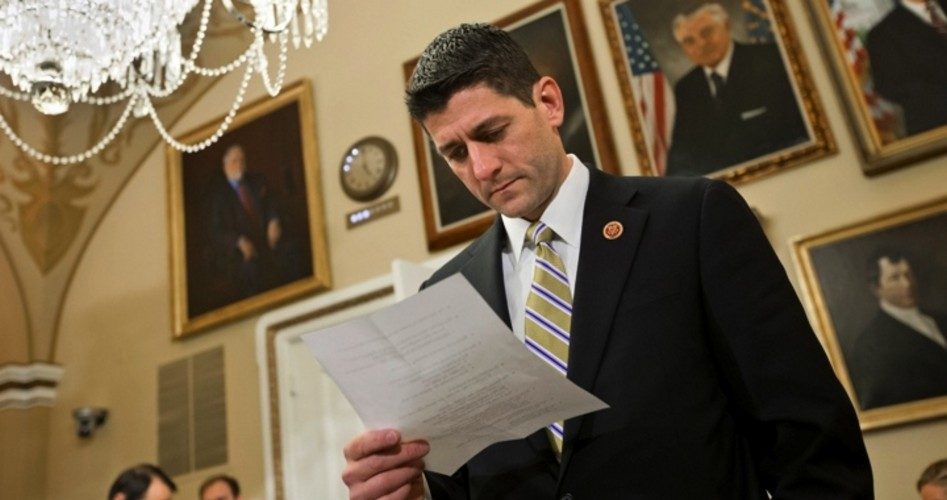
Just when it appeared that the Ryan-Murray debt ceiling compromise bill which just passed the House overwhelmingly Thursday night would find an equally enthusiastic reception in the Senate, along came Senator Jeff Sessions (R-Ala.) to declare that Senate Republicans will filibuster the bill when it comes to the Senate floor early next week. Not only would this delay the vote but it would necessitate two votes — each requiring 60 yeses — to pass the bill on to the president for signing: one for cloture on the filibuster, and the other on the bill itself. Senate Majority Leader Harry Reid said on Thursday that he has the votes, but his math remains problematic.
First, 32 House Democrats defected and voted against Ryan’s bill which may encourage some conservative Senate Democrats to follow suit. Second, Reid must garner 60 votes and he only has 55, assuming every Democrat lines up. Thirdly, there are certain liberal Democrat Senators who might vote no because it fails to extend unemployment benefits beyond 26 weeks, ending the federal largess to some 1.3 million now receiving it just in time for the holidays. Finally, there is not a single Republican Senator who has come out in support of Ryan’s bill. Senator Thad Cochran, the middle-of-the-road-Republican from Mississippi remains undecided, while Arizona’s liberal Republican Senator John McCain may vote “no” over concerns that the military services might not get sufficient funding to please him.
Senator Dan Durbin (D-Ill.) has done the math:
We need Republican votes to pass the budget agreement, period. We need at least five, and I’m hoping that there’ll be more than that.
There are not five Republicans who have announced they’re for it [yet] … I hope there are many more than that, and they’re just holding back for any number of reasons.
Those reasons could include concerns about the November midterm elections where 33 Senate seats are at risk. In fact, this may be a reason some Democrats may not vote for the bill. Those Democrats may include Senator Mark Pryor (D-Ark.), who is being challenged by tea party favorite Tom Cotton, currently leading Pryor by seven points in early polling. Democrat Mary Landrieu of Louisiana, who is now running neck-and-neck with each of her two conservative challengers in her reelection efforts, may decide a “yes” vote would end her chances altogether.
In North Carolina, Senate Democrat Kay Hagan “is polling below 50% against any and all potential GOP challengers in the 2014 election” according to pollster John Giokaris at PolicyMic.com, and another “yes” vote for more government spending could be her death knell.
In all, then, just when it appeared that the Republican cave in on the debt ceiling and the sequester was complete, the Senate, with its Democrat majority, just might stall Ryan’s bill and force a more favorable revision. If Reid’s math proves accurate, however, those Republican defectors who join him will also gain negative publicity just in time for the November elections.
Photo of Rep. Paul Ryan (R-Wis.): AP Images
A graduate of Cornell University and a former investment advisor, Bob is a regular contributor to The New American magazine and blogs frequently at www.LightFromTheRight.com, primarily on economics and politics. He can be reached at [email protected].



